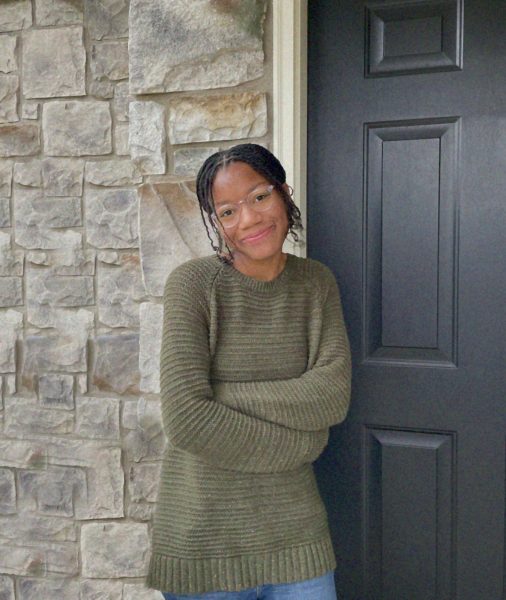Women’s colleges are vanishing. It’s a problem.
Students deserve a future with women’s colleges
On September 13, 2022, Notre Dame of Maryland University announced its decision to become co-educational in 2023. Maryland’s sole women’s institution since Hood College began enrolling men nearly twenty years ago, NDMU will be the last of the state’s 13 historical women’s colleges to close or transition from gender exclusivity. Students seeking the women’s college experience will soon suffer from Maryland’s vacancy of women’s post-secondary institutions. Despite their numerous benefits, the closings and expansions of women’s colleges comprise a “decades-long trend” caused by enrollment declines and other financial struggles exacerbated by the COVID-19 pandemic. Of the approximately 230 U.S. women’s colleges existing in 1960, only 116 remained in the 1980s, and less than 36 Canada and United States women’s colleges remain as of 2022. Though higher education opportunities for U.S. women emerged and evolved throughout the 1800s, they remain necessary, priming students for academic and professional success by prioritizing women’s education and development.
Following years of women’s exclusion from higher education, many women’s universities arose in the mid-1800s, disrupting traditional gender roles. Common in the U.S. South and Northeast, most women’s seminaries and academies served wealthier white classes, training women for teaching vocations. Throughout the late 1800s, women’s colleges’ curriculum enrichment and inclusivity grew. Resolving to provide education to formerly enslaved African American women disenfranchised from education in most states, New England teachers Sophia Packard and Harriet Giles founded the Atlanta Baptist Female Seminary in 1881, first enrolling eleven students. Now Spelman College, the 2,000-student Georgia school is the oldest of the United States’ two historically Black women’s institutions, committed to the “intellectual, creative, ethical, and leadership” development of women of African descent. Acknowledging African American women’s historical deprivation of education access, Spelman College continues its legacy of combatting racialized and gender-based academic and professional barriers.
Today, many students enroll in women’s colleges for the distinctive benefits of women’s affinity spaces which foster belonging, build mentoring relationships, and promote leadership. Student academic enrichment thrives at women’s institutions, where supportive faculty, alumni networks, and mentorship programs are common. Additionally, these schools cultivate student comfort and confidence, equipping pupils with conviction to pursue leadership roles; for example, Barnard College’s Young Women’s Leadership Institute organizes meetings between students and women in today’s workforce, spotlighting the relationship between gender and leadership. As a result, women’s college graduates are more likely to earn graduate degrees than their co-ed liberal arts and public university counterparts. The women’s college climate evidently maximizes students’ potential for professional and aspirational achievement through academic and skill growth.
Many NDMU students, faculty, and alumni oppose the school’s forthcoming shift to co-education, claiming the university’s expansion scorns the benefits of women’s college education. Weighing the advantages of attending local colleges including affordability and convenience, prospective Maryland college students may forgo the valuable women’s college experience. Without a change, the succumbence of transformative women’s education to financial turmoil will continue depriving students of opportunities they deserve.

My name is Ella Gilbert and I am thrilled to serve as ‘23-‘24 lead and features editor in my third and final year writing for the Wildezine. I’m...







Lawrence Hibbert • Nov 14, 2022 at 2:55 pm
Thank you, Ella, for sharing this exquisitely written piece. Your writing style is so mature and clear. You walk the reader through your thoughtful analysis and make such a compelling case for investment in Women’s colleges. This argument is similar to the need for HBCU’s and their value to the Black community. I would imagine, like HBCU’s, women’s colleges give women the unique opportunity to grow, develop, and refine their voice in a world that is largely male-dominated. The decline of these trusted spaces will have a direct impact on the next generation of leaders in our country. Thank you for bringing this important issue to light. We must do better…
Candice Ashton • Nov 14, 2022 at 1:00 pm
Such a great article. As the alumna of an all girls school, I know how impactful a single sex education can be. I believe women’s colleges are an integral part of our educational landscape and provide young women with something that they often don’t get in a coed environment. It’s great that you are raising awareness of these institutions and this article is extremely well written. Great job.
Eduardo Polón • Nov 11, 2022 at 8:22 pm
I found this article to be illuminating, well crafted, and maturely articulated. It was a pleasure to read. Thank you for the time and attention put into it.
Chris Miller • Nov 11, 2022 at 9:24 am
This is a meaningful story to cover. Thank you for elevating its importance! I had no idea that Notre Dame made this announcement about transitioning to a co-ed institution and I just visited the campus a year ago. I agree that there is a much-needed space for women’s colleges and students should have more options to consider without having to travel far to get this experience if they don’t desire to do that. They do so much to empower voices and build confidence in ways that other colleges can’t for the women who need it.